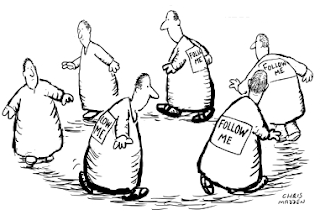
Description
Fundamentals of Social Psychology
Department of Psychology
Concordia University
Summer 2018
Office Hours: Mon/Wed 3:30 – 4:30PM (by request)
Professor’s Office: H-1125.12 (I can meet at Loyola upon request)
Day/Time: Mon/Wed 1:00 – 3:30 PM
Room: SP-157
How do others influence your behaviour? How are you influenced by social situations? Do you easily fall for conformity tactics? Would you obey authority, even though you are morally opposed to the suggested course of action? These are some of the questions that are addressed in the course, Fundamentals of Social Psychology.
In the course, students are introduced to core concepts, frameworks, models and theories of social psychology. It covers the scientific study of how people’s thoughts, feelings, and behaviours are influenced by the presence of others. This course also provides a critical perspective by challenging social institutions, practices and power relations that constitute forms of inequality and oppression.
In the course students discuss core topics that are related to current real-life situations. For example, students address the topic of racism because of the current political trends. There is a rise in instances of racism, prejudice and fascism in the USA, Canada and worldwide. Students analyze contemporary research on causes of racism and find solutions about how to prevent it.
Students also learn about a variety of other topics like, social perception, social cognition, the social self, attitude/attitude change, conformity, and group processes. Furthermore, we take a critical perspective by also incorporating feminist scholarship, queer theory, critical race psychology, and social constructivism.
Course Materials and Text:
Students are expected to complete ALL the designated readings BEFORE EACH CLASS. Students are also expected to attend ALL classes, complete ALL take home assignments and participate in class discussions. Please see the course schedule below for the dates the readings are due.
The required readings:
Aronson, E. Wilson, T. D., Fehr, B, Akert, R. M. (2017) Social Psychology, Sixth Canadian Edition, Pearson.
Recommended Readings:
Gough, B., McFadden, M., McDonald, M. (2013), Critical Social Psychology: An Introduction, Second Edition, Palgrave Macmillan.
Gough, B. (2017) The Palgrave Handbook of Critical Social Psychology, Palgrave Macmillan.
The power-point lecture notes will be posted on the course website before each class.
URLs and other electronic sources may be posted on the course website from time to time. Please visit the course website to get this material.
Course Format
The professor provides a balance of lectures and discussion based activities to teach students about social psychology. He also shows relevant multimedia clips, including documentary movies, Ted Talks and other interesting videos. Students are required to participate in classroom discussions and activities. Students are also expected to read the required text(s) and/or watch the assigned movie(s) before coming to class.
Participation
Participation is an important part of this course. From time to time, the professor will ask students to complete additional readings, watch video clips, think about certain subjects and/or complete short assignments outside of class time. Students MUST accomplish these tasks. The grade given for participation will be determined according to the completion of these tasks, classroom attendance and participation in discussions.
Course Evaluation
Exam 1 30%
Exam 2 30%
Exam 3 30%
Class Participation 10%
Letter Grade Equivalency
Your numerical grades will be converted to letter grades as follows:
A+ (93 – 100%) B+ (77 – 79.9%) C+ (67 – 69.9%) D+ (57– 59.9%)
A (85 – 92.9%) B (73 – 76.9%) C (63 – 66.9%) D (53 – 56.9%)
A- (80 – 84.9%) B- (70 – 72.9%) C- (60 – 62.9%) D- (50 – 52.9%)
F < 50%
Lecture Schedule: Themes and Required Readings
This is a TENTATIVE schedule and is subject to change. Be sure to consult the course website regularly to be aware of any changes.
Course schedule, topics and required readings:
June 27 – Introduction
July 4 – Introduction to Social Psychology
Reading:
Chapter 1 – Introduction to Social Psychology (pp. 1 – 19)
Aronson, E. Wilson, T. D., Fehr, B, Akert, R. M. (2017) Social Psychology, Sixth Canadian Edition, Pearson.
Recommended Readings:
Chapter 1 – Critical Social Psychology: An Introduction (pp. 3 – 27)
Gough, B., McFadden, M., McDonald, M. (2013), Critical Social Psychology: An Introduction, Second Edition, Palgrave Macmillan.
Chapter 2 – A Critical Look at Cognitive-Experimental Social Psychology (pp. 34 – 66)
Gough, B., McFadden, M., McDonald, M. (2013), Critical Social Psychology: An Introduction, Second Edition, Palgrave Macmillan.
July 9 – Social Cognition
Reading:
Chapter 3 – Social Cognition: How We Think About the Social World (pp. 48 – 73)
Aronson, E. Wilson, T. D., Fehr, B, Akert, R. M. (2017) Social Psychology, Sixth Canadian Edition, Pearson.
July 11 – Social Perception
Readings:
Chapter 4 – Social Perception: How We Come to Understand Other People (pp. 74 – 105)
Aronson, E. Wilson, T. D., Fehr, B, Akert, R. M. (2017) Social Psychology, Sixth Canadian Edition, Pearson.
July 16 – Exam 1
July 18 – The Self in the Social Context
Reading:
Chapter 5 – The Self: Understanding Ourselves in a Social Context (pp. 106 – 135)
Aronson, E. Wilson, T. D., Fehr, B, Akert, R. M. (2017) Social Psychology, Sixth Canadian Edition, Pearson.
Recommended Readings:
Chapter 6 – Self, Identity, Subjectivity (pp. 159 – 187)
Gough, B., McFadden, M., McDonald, M. (2013), Critical Social Psychology: An Introduction, Second Edition, Palgrave Macmillan.
Chapter 7 – Gendered and Sexed Identities (pp. 188 – 223)
Gough, B., McFadden, M., McDonald, M. (2013), Critical Social Psychology: An Introduction, Second Edition, Palgrave Macmillan.
July 23 – Attitudes and Attitude Change
Reading:
Chapter 6 – Attitudes and Attitude Change: Influencing Thoughts, Feelings and Behaviour (pp. 136 – 171)
Aronson, E. Wilson, T. D., Fehr, B, Akert, R. M. (2017) Social Psychology, Sixth Canadian Edition, Pearson.
July 25 – Social Influence and Conformity
Reading:
Chapter 7 – Conformity: Influencing Others (pp. 172 – 211)
Aronson, E. Wilson, T. D., Fehr, B, Akert, R. M. (2017) Social Psychology, Sixth Canadian Edition, Pearson.
Recommended Reading:
Chapter 4 – Social Influence (pp. 99 – 125)
Gough, B., McFadden, M., McDonald, M. (2013), Critical Social Psychology: An Introduction, Second Edition, Palgrave Macmillan.
July 30 – Exam 2
August 1 – Group Processes: Influence in Social Groups
Reading:
Chapter 8 – Group Processes (pp. 212 – 243)
Aronson, E. Wilson, T. D., Fehr, B, Akert, R. M. (2017) Social Psychology, Sixth Canadian Edition, Pearson.
August 6 – No class
August 8 – Prejudice
Reading:
Chapter 12 – Prejudice (pp. 342 – 383)
Aronson, E. Wilson, T. D., Fehr, B, Akert, R. M. (2017) Social Psychology, Sixth Canadian Edition, Pearson.
Recommended Reading:
Chapter 5 – Prejudice in Practice (pp. 126 – 158)
Gough, B., McFadden, M., McDonald, M. (2013), Critical Social Psychology: An Introduction, Second Edition, Palgrave Macmillan.
August 13 – Doing Critical Social Psychology
Reading:
Chapter 3 – Prejudice in Practice (pp. 67 – 96)
Gough, B., McFadden, M., McDonald, M. (2013), Critical Social Psychology: An Introduction, Second Edition, Palgrave Macmillan.
Final Exam During the Final Exam Dates
Classroom Conduct:
Students are encouraged to participate in class discussions in a mutually respectful way. Oppressive statements will not be tolerated in any form. This includes but is not limited to racism, sexism, classism, homophobia, transphobia, hate speech, bullying, and/or forms of derogatory statements. It is important that when others (including the professor) speak, we listen quietly and do not impede anyone’s ability to participate, pay attention to the conversation and/or have a positive classroom experience.
Academic Honesty:
Academic dishonesty is a serious offense and will not be tolerated. Acts of dishonesty include, but are not limited to, cheating and plagiarism. It is your responsibility to know and understand university and departmental policies. All acts of academic dishonesty will be reported. Please refer to the Undergraduate Calendar for complete details of offenses and penalties: http://registrar.concordia.ca/calendar/17/17.10.html
Students with Disabilities:
Students with disabilities should register with the Access Centre for Students with Disabilities and follow its procedures for obtaining assistance. In addition, please inform me of any special needs you have so that I can make appropriate accommodations. Please visit this website for more information. http://www.concordia.ca/students/accessibility.html




